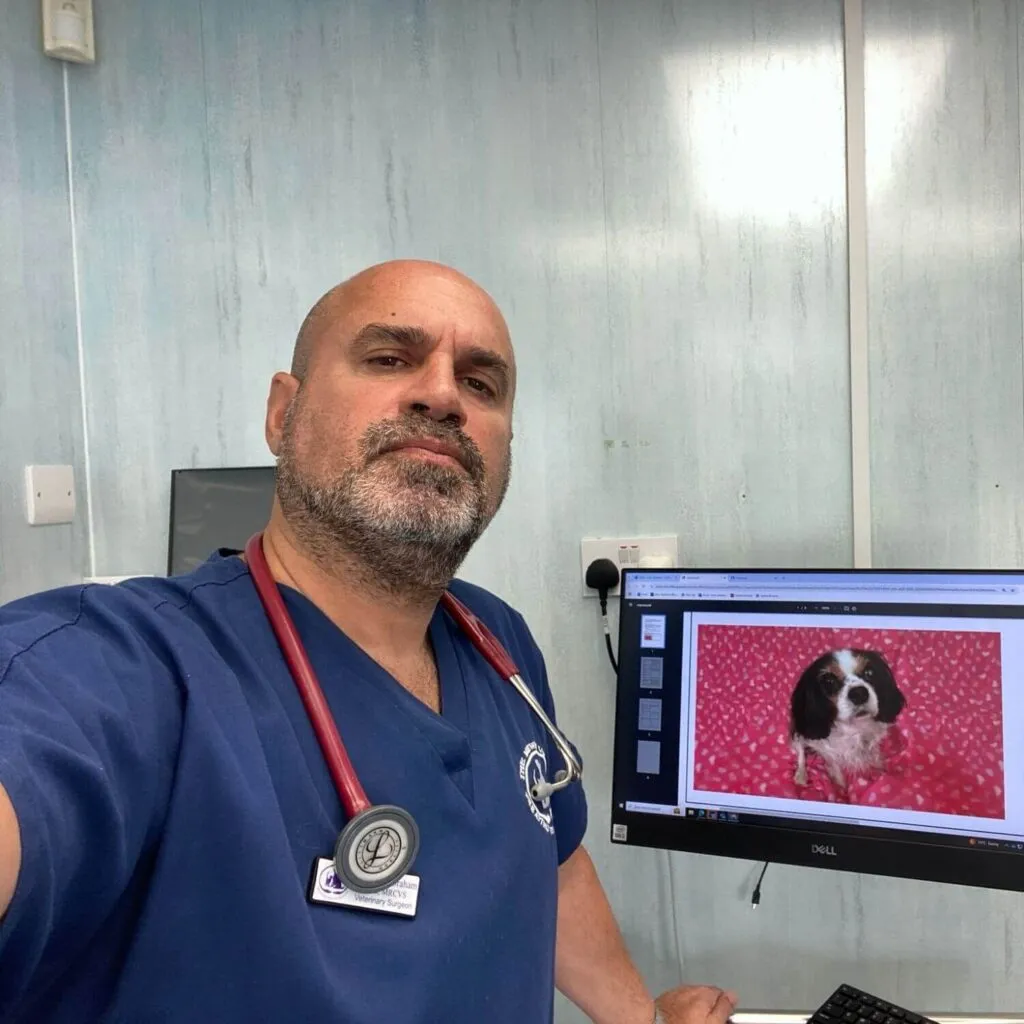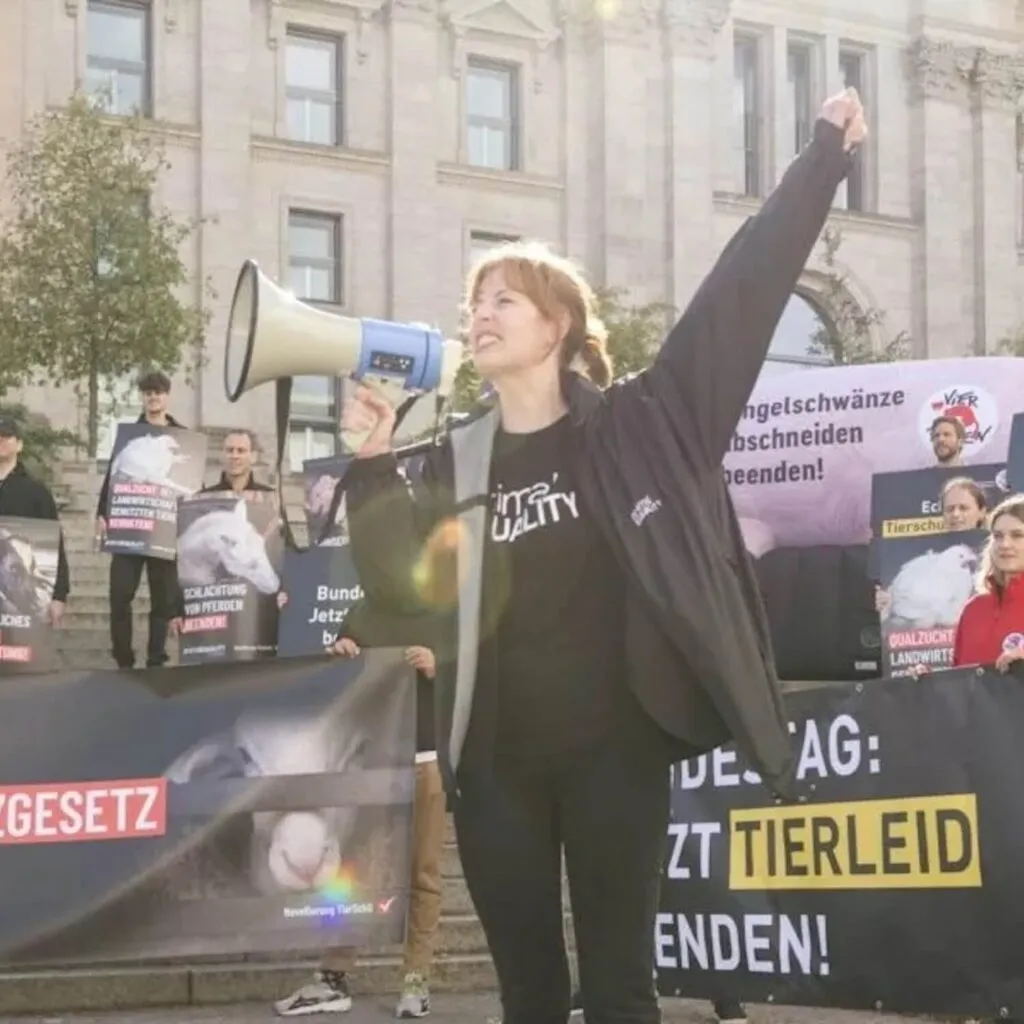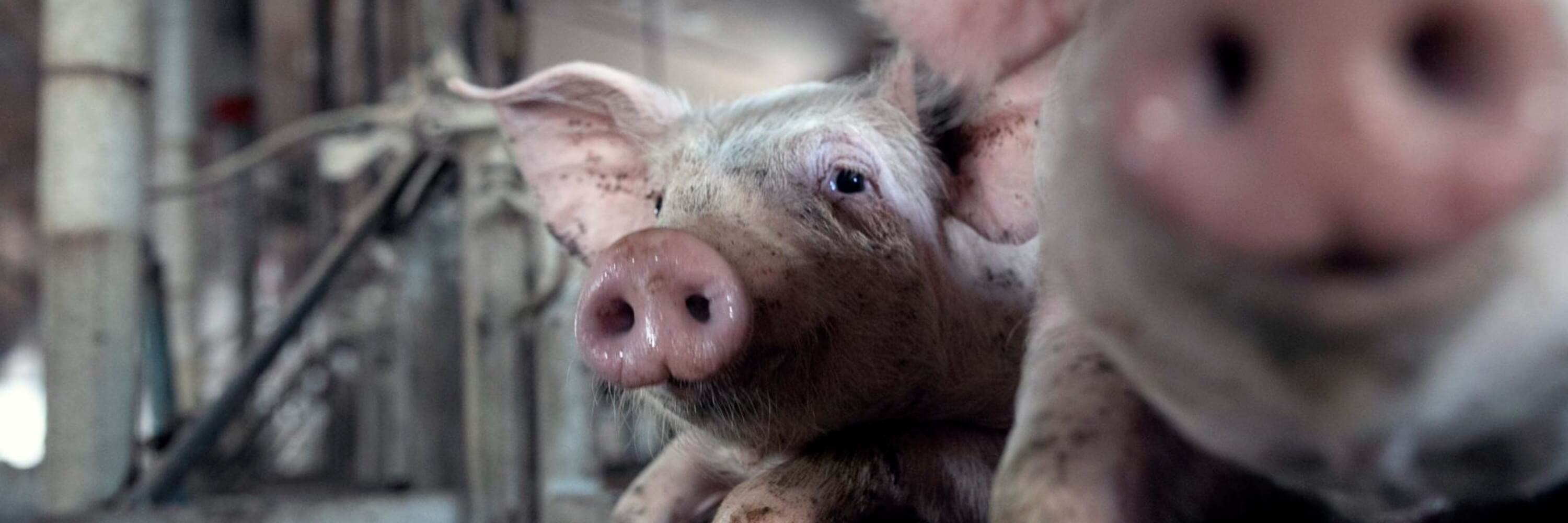
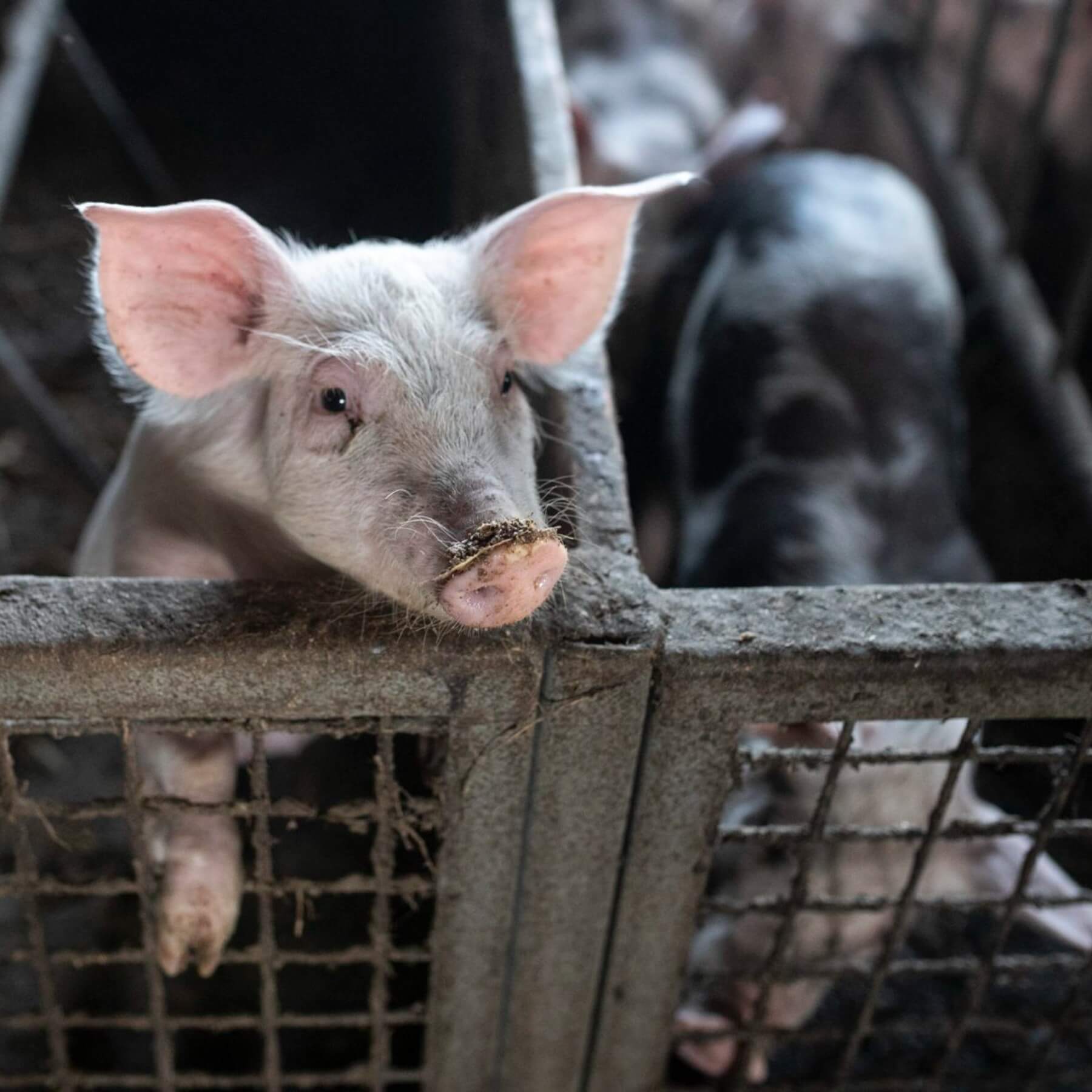
How To Solve The Enforcement Problem In UK Farms

In 2022, Animal Equality exposed the broken legal framework that is meant to better protect farmed animals in the UK.
While farms and slaughterhouses will always be merciless places, these already vulnerable animals should never be subject to additional illegal abuse or neglect.
The good news is that we have a solution to end this widespread unlawfulness and hold the industry to account – will you be part of it?
The Enforcement Problem
Over the last decade, Animal Equality has collected hundreds of hours of footage from inside factory farms and slaughterhouses.
We’ve witnessed pigs routinely having their tails cut off without pain relief, cows in dairy farms who can barely walk or stand, chickens collapsing under their own weight due to unnatural selective breeding practices, and salmon slaughtered while still conscious.
This mounting evidence shows that animal welfare laws are frequently being broken on farms across the UK, but little is being done about it.
In an investigation of a different kind, we examined why farms are able to break the law with few or no consequences, uncovering an urgent problem affecting the lives of farmed animals across the UK – a problem that we call ‘The Enforcement Problem’.
In November 2022, Animal Equality and The Animal Law Foundation published a groundbreaking report, uncovering shocking gaps in the legal framework that is meant to protect farmed animals.
We found that many farmed animal protection laws are not being properly enforced, leaving these already vulnerable animals at further risk of illegal and prolonged suffering.
Based on information collected over a four-year period, we discovered that on average in the UK:
- Fewer than 3% of farms are subjected to an official inspection each year;
- Following a complaint about animal welfare, just half of farms are then formally inspected;
- Just 0.33% of farms are prosecuted following initial animal welfare complaints. This means that only three complaints for every 1000 ended in a prosecution.
This lack of oversight and enforcement is unacceptable. Consumers are being misled, and animals are paying the price.
The Solution: A Licensing System
The enforcement problem inside UK farms is urgent and widespread, but it is also solvable. In fact, the solution already exists!
Many other animal industries are required to be licensed by UK law, alongside professions like dentists, doctors and lawyers. On the contrary, farms and slaughterhouses do not currently require any form of registration or licensing to ensure that the laws in place are not being flouted.
It is a clear oversight that an industry that rears and slaughters the greatest number of animals in the world is able to operate with very little supervision.
Animal Equality is calling on the UK Government to implement a licensing system for farms across Britain. Under this system, only the facilities that pass regular inspections will be allowed to operate.
How Will A Licensing System Work?
Introducing a licensing system will mean that all farms will be required to pay for a license to operate.
This license fee would cover the expense of increasing announced and unannounced inspections from Government officials – ensuring that breaches of animal welfare laws are more likely to be discovered, at no extra cost to the taxpayer.
The latest data suggests over 97% of farms are not inspected by a regulatory body on average each year. Under the licensing system, all farms would receive an official inspection at least every 1-3 years, depending on the size of the farm and the number of animals it houses.
These inspections would also be more robust, conducted against a clear set of species-specific welfare criteria and, where possible, unannounced.
This would ensure that animal welfare issues are more likely to be detected, better protecting animals across the country from unnecessary and prolonged suffering. It would also allow the public to better scrutinise the practices of the meat, dairy, egg and fish industries, which are too often hidden behind closed doors.
When inspections reveal that a farm is in breach of animal welfare law, the authorities would be empowered to deliver appropriate penalties. These could include fines, suspension or non-renewal of licenses, formal penalty notices on their worker / company record, or prosecution.
Our recent report revealed that securing prosecutions for animal welfare law breaches is no easy task, with only 0.33% of animal welfare complaints currently leading to a prosecution.
A licensing system would make it easier to take action against animal abuse, ensuring that facilities are not allowed to continue breaking the law and subjecting animals to unnecessary illegal suffering.
Building A Better Future For Farmed Animals
While a licensing system should be made a priority to be achieved in the short-term, we must also work to transition to more compassionate plant-based food systems in the future.
Around two-thirds of farmed animals currently live in factory farms, which is equivalent to nearly 50 billion animals worldwide.
With this number continuing to rise, we must question whether animal welfare can ever be guaranteed with such a high number of animals living in unnatural conditions on factory farms.
To address this, we are campaigning for the UK Government to simultaneously work to support farms to transition to plant-based farming systems, in order to reduce the unsustainable demand on animal agriculture, and to protect the planet as well as animals.
You can also make a difference for farmed animals right now by choosing to leave cruelty off your plate and embrace plant-based.
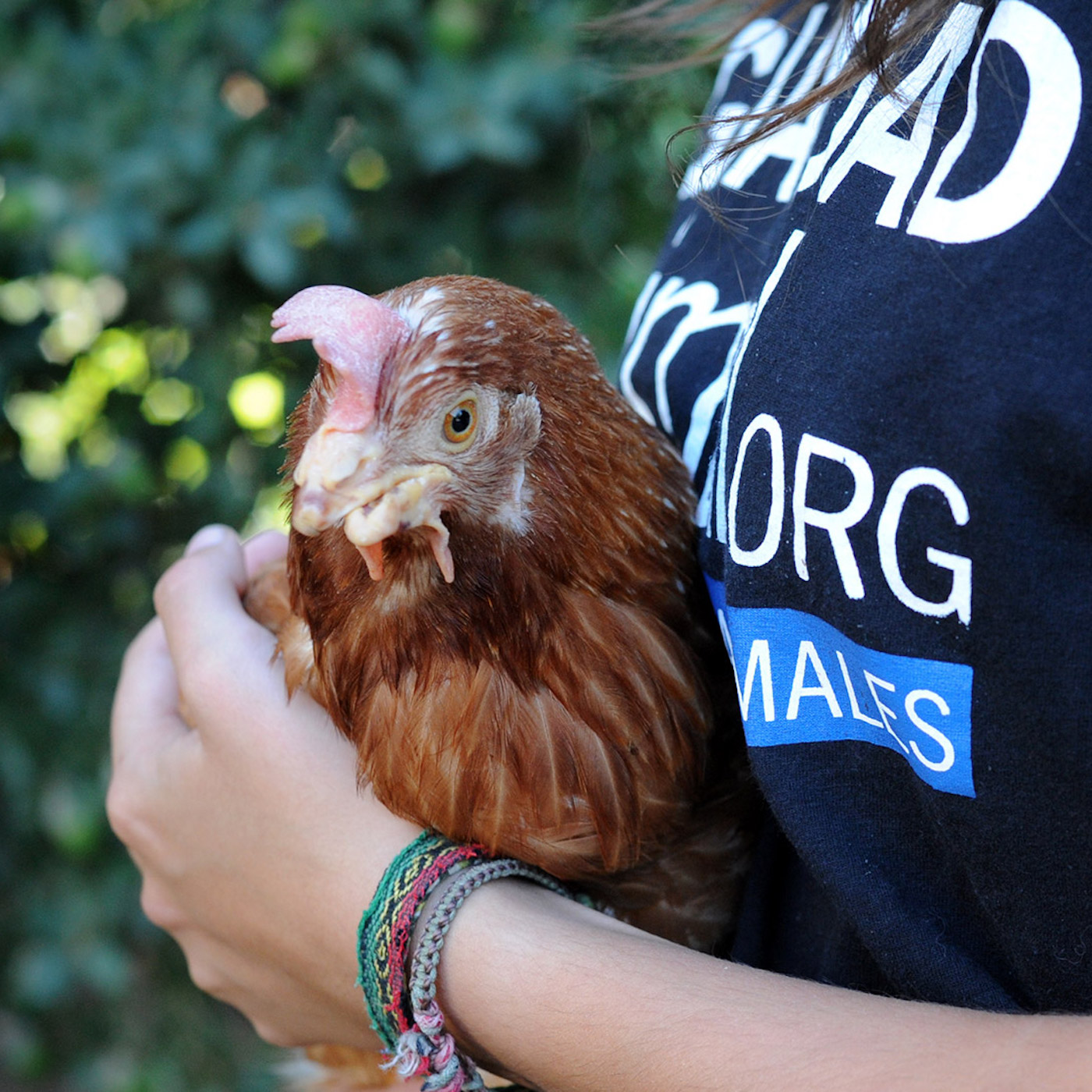
save animals, eat plant based
As a consumer, you hold the power to protect animals from the meat industry. Every plant-based meal saves animals from a life of misery in factory farms and slaughterhouses.
Will You Be Part Of The Solution?
Now that you know about the solution, will you help us make it a reality?
Tens of thousands of people have already signed our petition calling for the UK Government to introduce a licensing system for all farms.
The campaign has had support from celebrities like TV doctor and presenter Dr Amir Khan and comedian and star of Netflix’s After Life Diane Morgan.
But we must not stop there.
With every signature we get, the closer we are to making our vision of a future free from suffering come true.
Your signature could be the one that tips this campaign over the edge and convinces politicians to act.
Once you have signed the petition, please also consider sharing it with your friends and family to help spread the message even further.
Together we will ensure that no animal has to suffer in silence behind the walls of UK factory farms and slaughterhouses.
Featured/Header Image Credit: Andrew Skowron
Recommended
